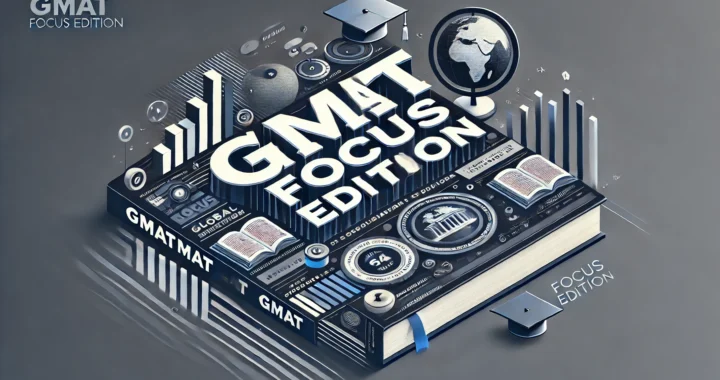Are you planning to study abroad and wondering what it takes to excel in the IELTS exam? The IELTS syllabus is crucial for your preparation, whether you’re aiming for the Academic or General Training module. Understanding the syllabus in detail will not only boost your confidence but also give you a strategic advantage.
The IELTS (International English Language Testing System) is a standardized test that assesses your English language proficiency. It is a gateway to educational and professional opportunities in English-speaking countries. This comprehensive guide to the IELTS syllabus for 2024 will cover everything you need to know, from exam format to preparation tips, ensuring you’re well-prepared to achieve your desired band score.
IELTS Syllabus Exam Format

The IELTS exam is structured to evaluate your listening, reading, writing, and speaking skills. It’s divided into four sections, each designed to test different aspects of your English proficiency. Both the Academic and General Training modules follow the same format for Listening and Speaking, while Reading and Writing differ.
Here’s a breakdown of the IELTS exam format:
| Section | Duration | Details |
|---|---|---|
| Listening | 30 minutes | Four recordings of native English speakers, with a variety of question types including multiple choice and summary completion. |
| Reading | 60 minutes | Three reading passages with tasks. The Academic test includes texts from books, journals, and newspapers, while the General Training test includes extracts from books, magazines, and notices. |
| Writing | 60 minutes | Two tasks: Task 1 requires a 150-word response (report for Academic, letter for General Training), and Task 2 is a 250-word essay. |
| Speaking | 11-14 minutes | A face-to-face interview with an examiner, including an introduction and interview, a long turn, and a discussion. |
Understanding the format of each section is the first step towards effective preparation. Knowing what to expect allows you to tailor your study plan accordingly and focus on areas that need improvement.
IELTS Reading Syllabus

The IELTS Reading section differs between the Academic and General Training modules, both in content and difficulty. Here’s a breakdown of what to expect in each module:
| Feature | Academic Reading | General Training Reading |
|---|---|---|
| Number of Questions | 40 | 40 |
| Number of Passages | 3 | 3 sections (Section 1: 2-3 short texts, Section 2: 2 short texts, Section 3: 1 long text) |
| Text Sources | Books, journals, magazines, newspapers, and online articles | Notices, advertisements, company handbooks, official documents |
| Question Types | Multiple choice, Identifying information, Identifying writer’s views/claims, Matching information, Matching headings, Matching features, Matching sentence endings, Sentence completion, Summary/note/table/flow-chart completion, Diagram label completion, Short-answer questions | Multiple choice, Identifying information, Identifying writer’s views/claims, Matching information, Matching headings, Matching features, Matching sentence endings, Sentence completion, Summary/note/table/flow-chart completion, Diagram label completion, Short-answer questions |
| Difficulty Level | Higher, designed for university-level texts | Moderate, reflects everyday English usage |
IELTS Writing Syllabus

The IELTS Writing section requires test-takers to complete two tasks, differing between the Academic and General Training modules:
| Feature | Academic Writing Task 1 | General Training Writing Task 1 | Academic & General Training Writing Task 2 |
|---|---|---|---|
| Type of Task | Describe visual information (graph, table, chart, diagram) | Write a letter | Write an essay |
| Word Limit | 150 words | 150 words | 250 words |
| Duration | 20 minutes | 20 minutes | 40 minutes |
| Purpose | Summarize, compare, or explain data | Request information, explain a situation | Present an argument or problem, and provide solutions or opinions |
IELTS Speaking Syllabus

The IELTS Speaking section is a face-to-face interview with an examiner, consisting of three parts:
| Part | Duration | Description |
|---|---|---|
| Introduction and Interview | 4-5 minutes | General questions about yourself, your home, family, work, studies, and interests |
| Long Turn | 3-4 minutes | You will be given a topic and one minute to prepare. You then speak on this topic for 1-2 minutes, followed by a few questions. |
| Discussion | 4-5 minutes | More abstract questions related to the topic in Part 2 |
IELTS Exam Pattern and Scoring

Understanding the IELTS exam pattern and scoring system is essential for effective preparation. Here’s a detailed breakdown:
| Section | Number of Questions | Duration | Scoring Criteria |
|---|---|---|---|
| Listening | 40 | 30 minutes | Each correct answer receives 1 mark. Band scores are calculated out of 9. |
| Reading | 40 | 60 minutes | Each correct answer receives 1 mark. Band scores are calculated out of 9. |
| Writing | 2 tasks | 60 minutes | Assessed on Task Achievement, Coherence and Cohesion, Lexical Resource, and Grammatical Range and Accuracy. |
| Speaking | 3 parts | 11-14 minutes | Assessed on Fluency and Coherence, Lexical Resource, Grammatical Range and Accuracy, and Pronunciation. |
Band Descriptors:
- Band 9: Expert user
- Band 8: Very good user
- Band 7: Good user
- Band 6: Competent user
- Band 5: Modest user
- Band 4: Limited user
- Band 3: Extremely limited user
- Band 2: Intermittent user
- Band 1: Non-user
- Band 0: Did not attempt the test
IELTS Band Score Calculation:
The overall band score is the average of the four section band scores, rounded to the nearest whole or half band.
Effective IELTS Preparation Tips

- Understand the Test Format: Familiarize yourself with the test format for each section.
- Practice Regularly: Take practice tests and mock exams to identify strengths and weaknesses.
- Use Official Materials: Use IELTS official preparation materials for the most accurate practice.
- Improve Time Management: Practice completing each section within the allotted time.
- Focus on Weak Areas: Spend extra time improving on areas where you score lower.
- Join Study Groups: Collaborate with others preparing for IELTS to share tips and resources.
- Seek Professional Guidance: Consider enrolling in an IELTS preparation course or hiring a tutor.
Conclusion
Preparing for the IELTS exam might seem challenging, but with a clear understanding of the IELTS syllabus and a structured study plan, you can achieve your desired band score. Remember to stay consistent with your preparation and make use of all available resources. For personalized guidance and more information, feel free to reach out to our study abroad consultants.




